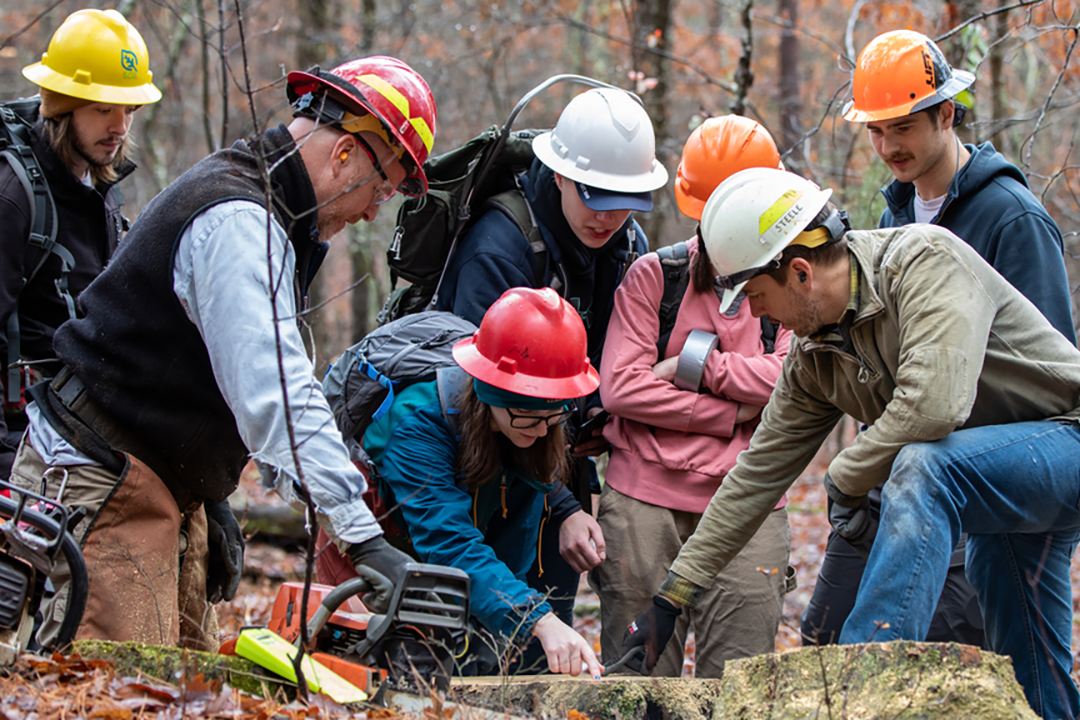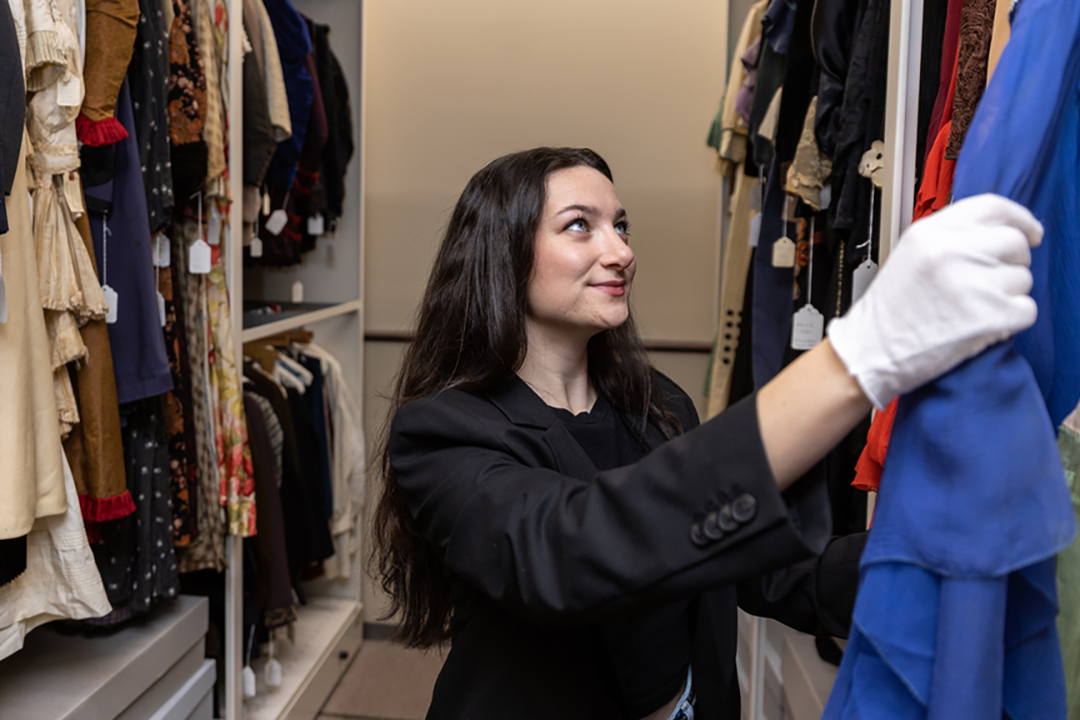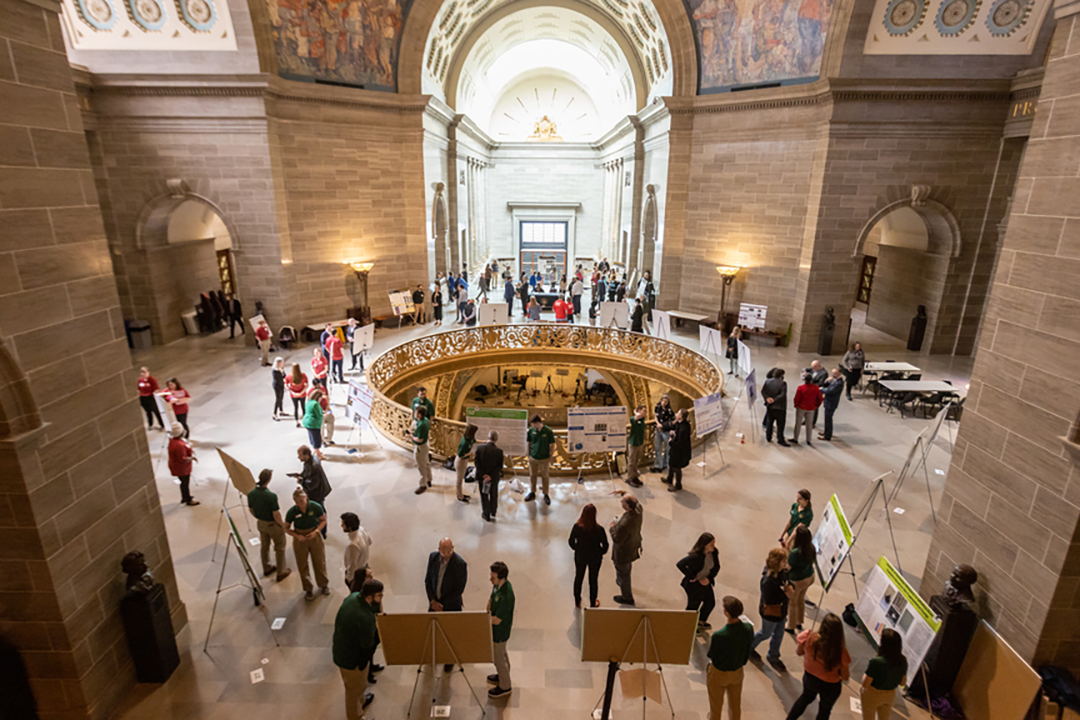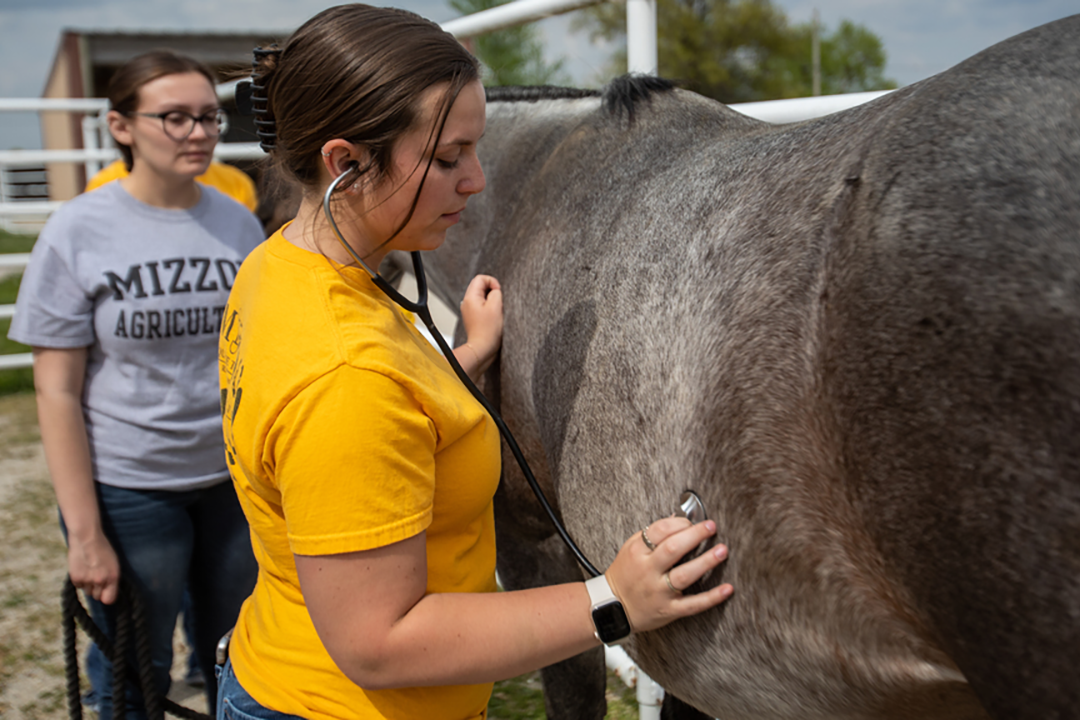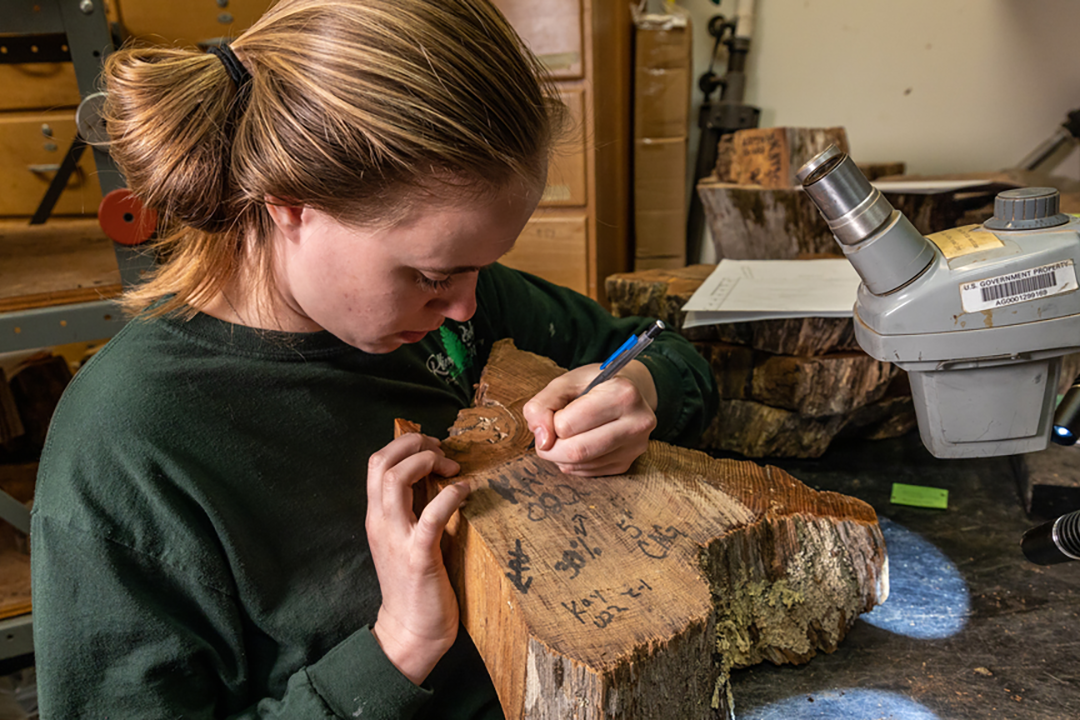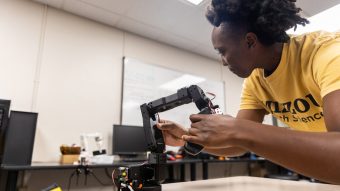Oct. 31, 2024
Contact: Brian Consiglio, consigliob@missouri.edu
At the University of Missouri, it’s easy to get involved in research — even as early as your first day on campus. And you don’t always need lab coats and pipette tubes. As the state’s flagship university, Mizzou offers research opportunities that span disciplines such as music, nursing, history, agriculture, geology, anthropology, education, engineering and beyond. And “laboratories” at Mizzou include everything from farms, museums, forests and libraries to exercise classes, national parks, horse barns and even virtual environments.
Getting involved in research helps you develop mentoring relationships, earn wages and launch your career — all while developing critical thinking, teamwork, problem-solving and other skills that will serve you for life.
If you’re not sure where to look or how to get started, you’ve come to the right place. Here are four ways to take advantage of opportunities at Mizzou — a leading research university and member of the prestigious Association for American Universities — and some advice from current student researchers.
1. Attend undergraduate research workshops via Zoom
Explore research from the comfort of your room. Each month, the Office of Undergraduate Research (OUR) offers an online workshop about “Getting started in undergraduate research and creative scholarship.” Other topics include responsible and ethical conduct of research, research communication and research careers across employment sectors. Upcoming workshops are on MU Engage and are led by experienced Mizzou faculty, staff, graduate students and alumni who want to help set you up for success.
2. Become S.T.A.R certified
Become a research star. The Student Training for Advancing Research (S.T.A.R.) program is a recognition opportunity designed to equip you with the knowledge base you need to excel in research from day one. By attending five or more undergraduate research workshops, you can earn a “S.T.A.R.,” an achievement that enhances your resume and sets you apart, opening doors to future opportunities.
3. Connect with a department-specific faculty research liaison
Find the right mentor and unlock your full potential as a researcher. At Mizzou, we know that great guidance can make all the difference in your academic journey. That’s why faculty members from more than 60 academic departments have stepped up to help you connect with a research mentor. While these liaisons are just a sample of the incredible support you’ll find across campus, they’re a perfect place to start as you search for opportunities and someone to help connect you with a mentor on your research journey. Here is the full list of Mizzou research faculty liaisons.
4. Stay informed and earn while you learn.
Stay in the know. The OUR website is a one-stop shop for resources on internships, stipends and jobs, as well as applying for fellowships, summer programs and graduate school. When you sign up for the OUR monthly newsletter, the news lands straight in your inbox.
Student success story: Addison Vallier
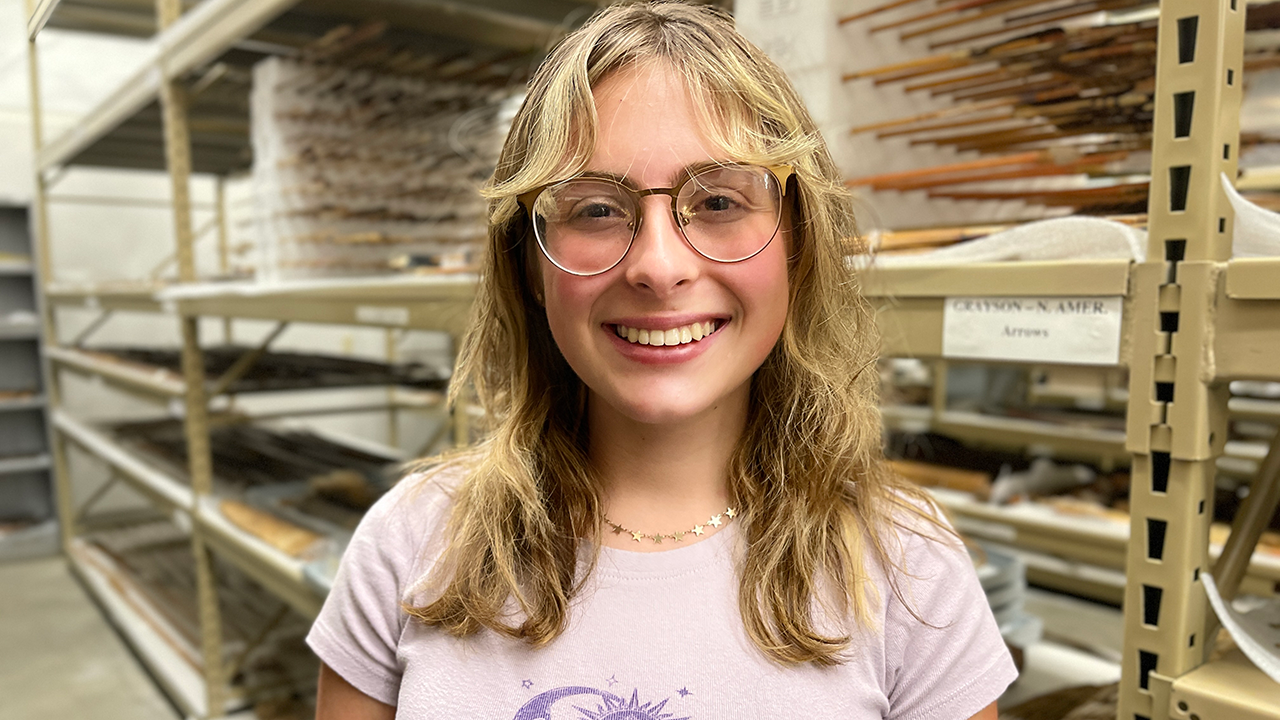
A sophomore from Liberty, Missouri, Addison Vallier came to Mizzou because it’s one of only a few universities that offers a public history concentration within its Department of History. Public history is history presented to general audiences through museums, state parks and other public venues outside of academic settings.
“I came to Mizzou because it offers high-quality research and opportunities for undergraduate students to get involved,” Vallier said. “My freshman year, I went to the Office of Undergraduate Research and said I wanted to work in museums one day. They connected me with Dr. Medeia Csoba DeHass, an associate professor in the Department of Geography in the College of Arts and Science, and I have been working as a research assistant in her 3D Heritage Preservation Lab ever since.”
A recent highlight for Vallier was traveling with her research team to the Milwaukee Public Museum to conduct 3D modeling and digital documentation of Alaska Native collection pieces. The National Science Foundation-funded project partners with Kawerak Inc, the non-profit consortium of 20 federally recognized tribes from the Bering Strait region of Alaska. Her research team also visited the Hood Museum of Art at Dartmouth College.
“Any student who wants to get involved in research at Mizzou should visit the Office of Undergraduate Research and tell them your interests so they can connect you with a faculty member who is working on similar topics,” Vallier said.
Student success story: Brett Boney
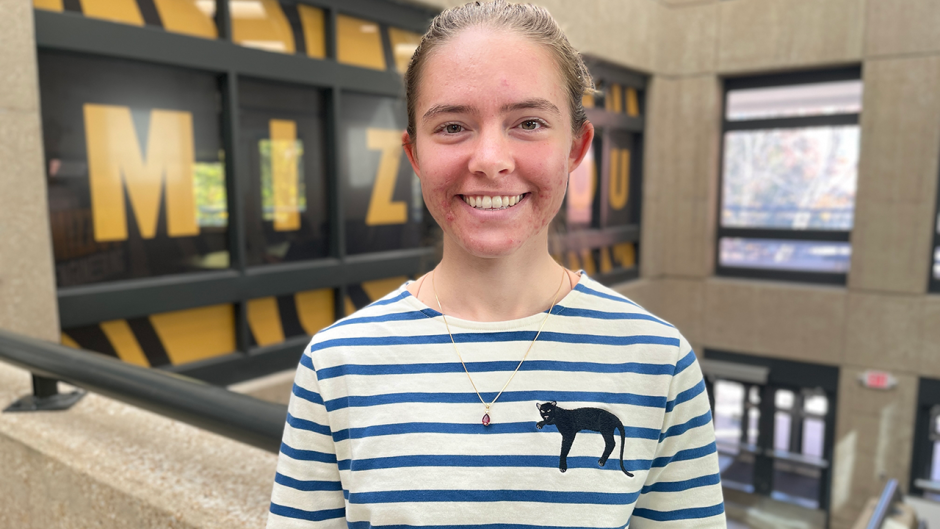
A sophomore chemical engineering major from Springfield, Missouri, Brett Boney came to Mizzou because of its reputation as an active research university.
“The faculty at Mizzou are very encouraging, welcoming and supportive,” she said. “They want you to learn and grow in their labs. It is inspiring to be surrounded by people who want to make a difference.”
Boney conducts research in the lab of Bret Ulery, an associate professor in the College of Engineering and researcher with NextGen Precision Health. The lab focuses, in part, on analyzing novel polymer-based products to ultimately improve regenerative medicine.
“I looked online for bioengineering labs and emailed Dr. Ulery to ask about opportunities to join his lab,” she said. “What I enjoy most about working with Dr. Ulery is that he truly wants to help students succeed. Rather than expect us to know everything right away, he wants us to be hard workers who are ready to learn.”
For students interested in getting involved in research, Boney recommends looking for labs that align with their interests, whether that is nutrition, medicine, computer science or history. A good place to start is Mizzou’s department-specific research faculty liaisons list. She also suggests establishing relationships with your primary investigator and other students in your lab as early as possible.
“Starting early allows you to quickly identify your strengths and weaknesses,” Boney said. “By building critical thinking and problem-solving skills, as well as learning how to persevere through challenges and roadblocks, the skills you learn through research will help you regardless of your future career path.”
